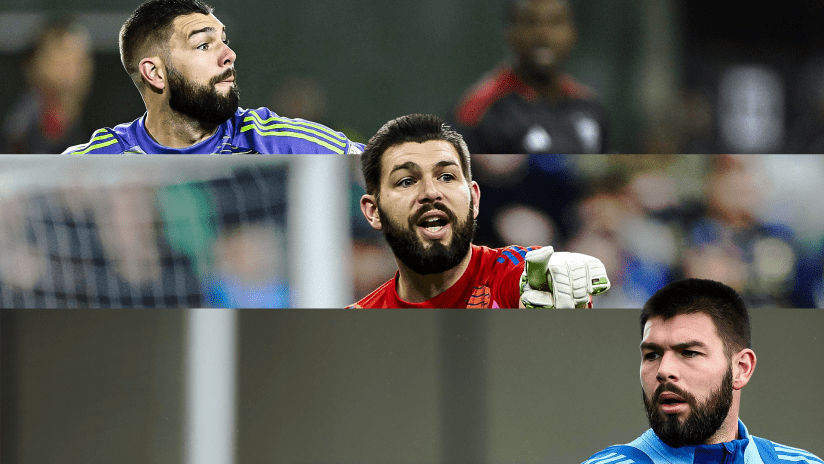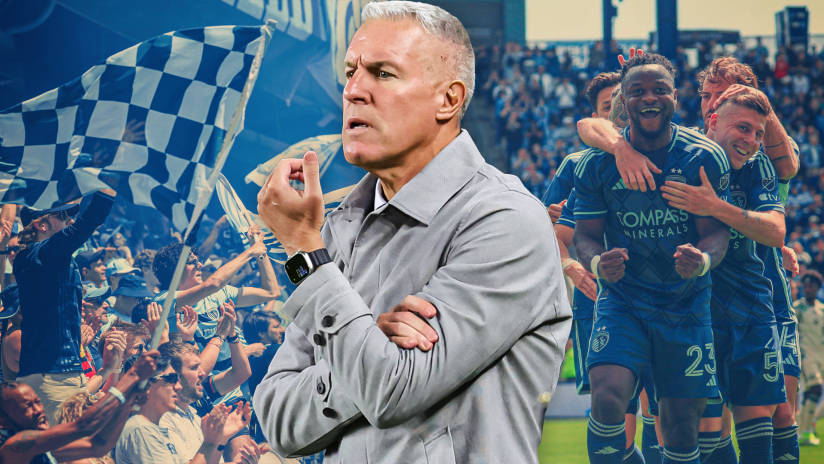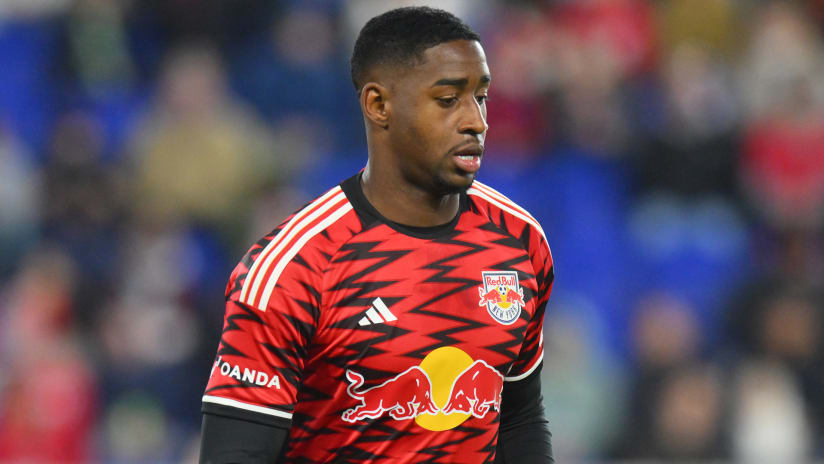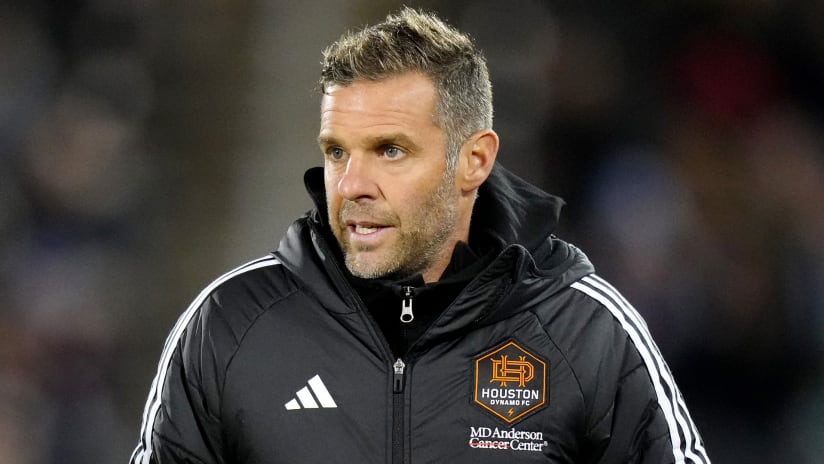WASHINGTON – If there’s one thing that bothers Gregg Berhalter about the way his US men’s national team is perceived, it’s the relative lack of emphasis on his squad’s extreme youth and the paucity of experience that provided for their 2022 World Cup qualifying journey.
“If we had qualifying in 2026, and we had the same team that we took this time, we'd still be younger than the team that didn't qualify in 2018. That's how young this team is,” the USMNT manager told a small group of reporters after his appearance at the Aspen Institute’s Project Play Summit at Audi Field, asking the public and the media to “give them some leeway” as they overcome the ghosts of 2017’s failures.
“It's unheard of, what this team has done. Qualifying is a monster. So you take a group of super-experienced players and they can't get it done. And the expectations are on this young group of players, who have never gone through it before, to breeze through qualifying. And I don't think that's fair. Let's be realistic, guys.”
Any sense of annoyance seems to be balanced out, and then some, by Berhalter’s pride in the unity and growth his squad displayed in their Concacaf Octagonal campaign, and the enormous long-range upside that comes with such a callow group.
Taking part in a keynote discussion about the United States youth soccer landscape on Wednesday, he did not hesitate to categorize his team’s sky-high potential as a legacy of the U.S. Soccer Development Academy. An elite youth league founded and operated by the federation for more than a decade before it was shuttered in 2020 – with most of its principles and membership subsequently transitioned to MLS NEXT – the DA sought to identify and concentrate top young prospects in a professional-style training environment with high-level competition in both training sessions and games.
“It's not a coincidence that all of a sudden, we have elite players around the world,” said Berhalter, who got an up-close view of the DA during his time in charge of the Columbus Crew from 2013-18, where his son Sebastian, now with the Vancouver Whitecaps, also rose through the academy system and eventually signed a homegrown contract.
“It was a concentrated effort by US Soccer, MLS clubs, to invest, and then ensure the pro player pathway," he said. "Because when you have better coaches, you have better facilities, you have better methodology, you can produce better players.”
Berhalter’s Crew ties and his reliance on a number of key USMNT contributors based in the league have led some fans to accuse him of harboring a soft spot for MLSers. But for him, it boils down to a fundamental truth about how the club and international levels interface, especially with the league having lately made a paradigm-shifting commitment to nurturing and selling on young players.
“MLS is essential to the national team. And the investment by MLS owners and infrastructure, in coaching, in everything, has gotten us to where we are right now,” he said. “And without that we wouldn't be there. Think about it: What team in the world is a good team that doesn't have a strong [domestic] league?
“It's instrumental in the development of our player pool, as is Europe,” he added. “The beauty of MLS right now is our young players can get on the field. That's beautiful. Ricardo Pepi doesn't get transferred if he can't get on the field, right?”
Intriguingly, Berhalter alluded to an “expiration date” for up-and-comers like the FC Dallas product.
“I think that when you have top-level players, youth players, that are able to get on the field in Major League Soccer, there comes a point – what we talk about is, where it becomes not challenging enough,” he said. “At that point, they need to find another challenge. But until that point, it doesn't do a player any good to be in Europe sitting on the bench.
“They need to play games, they need to be challenged, they need to be on the field and MLS provides that. When they're done being challenged here, now take the next step. But the whole progression of a player playing in a youth academy, coming into the second team, playing in the first team, going on to Europe, is a great pathway for our young players.”
The USMNT also has a role in this, as he noted during the keynote. History has shown World Cup runs can draw nationwide attention to soccer like nothing else can, including among children who eventually become the star players of the future. That’s vital for a sport still laboring to transcend long-held associations with upper-middle-class suburbs and expensive travel programs.
Berhalter and his staff did some informal polling of the current squad about the program’s biggest moments, and some 70% of them cited Landon Donovan’s iconic goal vs. Algeria at the 2010 World Cup as a watershed memory. It’s a timely reminder of how powerful a strong outing at Qatar 2022 would be, not only now, but for years to come.
“For me, it's about creating heroes. The team has the opportunity to do that with their performance,” said Berhalter, whose current roster is dramatically more diverse than its counterparts from decades past. “I remember when the World Cup was in the United States in 1994; I can rattle off the names of the players that were in that World Cup. When I played, they became my heroes.
“So the 2026 World Cup is an opportunity for us to inspire a nation, but inspiring individuals – in particular, under-served communities. Because our team represents them.”













